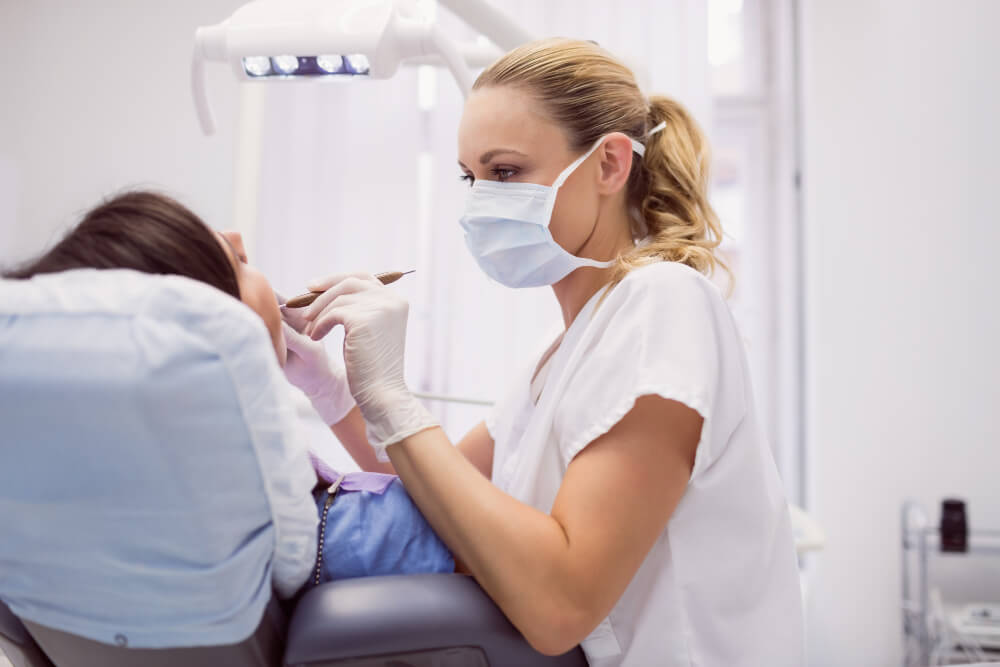How do pregnant women protect their teeth during pregnancy?

Pregnancy is an amazing — and sometimes bewildering — time. Your body goes through huge changes, and your mouth is no exception. Some women say that with each pregnancy their teeth get worse and tragically, some women even say they lose a tooth for each pregnancy. What we want to explain in this blog is that you DON’T have to have teeth and gum problems during your pregnancy and there are steps you can take to make sure your teeth stay healthy and strong. Hormones, diet shifts, morning sickness and changes in immunity can make gums more sensitive, teeth more vulnerable and dental decisions feel confusing. This guide from My Local Dentists explains what really matters, what’s safe, what to watch for, and how to protect both you and your baby. (Plus: practical tips, evidence-based facts and links to major professional bodies so you can read more.)
Top-line takeaways
- Dental care is safe during pregnancy. Routine checks, cleanings and necessary treatment are generally safe and recommended — delaying care can make small problems bigger. ADA+1
- Pregnancy makes gum disease and enamel erosion more likely. Up to ~60–70% of pregnant women experience pregnancy gingivitis. Good home care and professional cleans help. Teeth+1
- Make sure you aren’t lacking any vitamins and nutrients in your body. Talk to your GP and obstetrician about regular blood tests and appropriate dietary intake and supplements to help stay on top of it.
- Periodontal (gum) disease has been associated with adverse pregnancy outcomes, but the evidence on whether treating gum disease prevents preterm birth is mixed. Discuss risks and treatment with your dentist and obstetrician. Frontiers+1
- Dental X-rays are extremely low dose and safe when clinically justified ADA+1
- Local anaesthetics (e.g. lidocaine with/without adrenaline) are safe when used appropriately ADA+1
- Most antibiotics (e.g. penicillins, chephalosporins) are safe, within known exceptions like tetracyclines ADA+1
Why diet and nutrition is critical during pregnancy
Pregnancy is a time of high nutritional demand, and if key vitamins and minerals are insufficient, it can make the mother more prone to oral health problems such as gum disease, tooth sensitivity, enamel erosion, and delayed healing.
Both the Australian Dental Association (ADA) and the American College of Obstetricians and Gynecologists (ACOG) recommend that:
“Pregnant women maintain optimal nutrition, including adequate calcium, vitamin D, vitamin C, folate, and iron intake, to support oral and overall health during pregnancy.”
Neglecting nutrition and oral hygiene can lead to periodontal disease, which has been associated (in some studies) with preterm birth and low birth weight — although evidence on direct causation is still mixed.
Kumar, S. et al. (2023). The Role of Vitamin D in Oral Health and Disease. Nutrients, 15(3), 624.
Okada, M. et al. (2011). Iron deficiency and oral health in pregnant women. Asia Pac J Clin Nutr.
Why pregnancy affects your mouth
Pregnancy changes hormone levels (especially oestrogen and progesterone), immune response and eating patterns. Those shifts can:
- Make gums react more strongly to plaque — causing swollen, red gums that bleed easily (pregnancy gingivitis). Many women notice this from the second trimester. Teeth
- Increase risk of dental erosion if you experience frequent vomiting (morning sickness) because stomach acid softens enamel. colgateprofessional.com.au
- Change cravings and snacking habits which can raise cavity risk if sugary foods/drinks are frequent.
Knowing these mechanisms helps explain why prevention and early treatment matter.

Common pregnancy oral issues — what to watch for
- Pregnancy gingivitis — red, swollen or bleeding gums, often worse in the second and third trimesters. If untreated, it can progress to periodontitis. Teeth
- Increased cavities — due to diet changes, reflux or reduced attention to oral hygiene during fatigue. colgateprofessional.com.au
- Tooth erosion — from repeated vomiting or reflux; enamel becomes thinner, teeth look yellow or feel sensitive. colgateprofessional.com.au
- Pregnancy tumours (pyogenic granuloma) — small overgrowths on gums that bleed easily; usually harmless and often shrink after delivery. dhsv.org.au
- Dental pain or infection — dental infections should be treated promptly because infections can spread and cause systemic effects (and are uncomfortable for you).
If you have any of these signs, don’t ignore them — book a check-up.

Is dental treatment safe during pregnancy?
Yes — in general, dental care is safe and recommended during pregnancy. Major professional bodies advise that necessary dental work should not be postponed and that routine care (exams, cleanings, fillings, root canals, even extractions when needed) can be performed during pregnancy if indicated. The American Dental Association and the American College of Obstetricians and Gynecologists have issued guidance supporting dental care in pregnancy. ADA+1
Timing: many clinicians prefer the second trimester (weeks 14–20) for elective dental work because morning sickness has usually settled and the uterus is still relatively small — making you more comfortable in the dental chair. But if you have a dental emergency or infection, treatment should not be delayed regardless of trimester. South East Sydney Health
Dental X-rays: myth vs. reality
There’s a lot of worry about X-rays during pregnancy. Here’s the evidence-based position:
- Modern dental X-rays use very low radiation. With digital sensors and short exposure times the dose is minimal. ADA
- Professional guidance (ACOG, ADA, radiology bodies) says that no single diagnostic dental X-ray has a radiation dose high enough to cause adverse fetal effects, and X-rays can be taken when clinically necessary. Lead aprons are not required because they do not meaningfully reduce the already negligible fetal dose. ACOG+1
If your dentist recommends an X-ray during pregnancy, it’s usually because the benefit (diagnosing an infection or problem) outweighs the tiny risk of radiation.
Anaesthetics, antibiotics and pain relief — what’s safe?
- Local anaesthetics such as lidocaine (with or without adrenaline) are commonly used and considered safe in pregnancy when used appropriately. Your dentist will use the lowest effective dose. South East Sydney Health
- Antibiotics: many commonly used antibiotics (e.g., penicillins like amoxicillin, some cephalosporins) are considered safe in pregnancy when needed. Some antibiotics (e.g., tetracyclines) are avoided because of effects on fetal teeth/bone. Always tell your dentist and obstetrician about your pregnancy — they’ll choose the safest option. South East Sydney Health
- Analgesics: paracetamol (acetaminophen) is considered safe for pain relief in pregnancy in recommended doses. NSAIDs (ibuprofen, aspirin) are generally avoided, particularly in the third trimester, unless your obstetrician advises otherwise. South East Sydney Health
Your dentist should coordinate with your obstetrician for medication decisions when needed.
Gum disease and pregnancy outcomes — what does the evidence say?
Multiple studies show an association between maternal periodontal disease and risks such as preterm birth and low birth weight. However, whether treating gum disease during pregnancy reduces those risks is not conclusively proven — systematic reviews and Cochrane analyses show mixed results. In short:
- Gum disease is linked to adverse outcomes in some studies, so prevention and treatment are prudent. Frontiers
- Randomised trials of periodontal treatment for preventing preterm birth produced mixed findings; while oral health should be improved during pregnancy, it’s not a guaranteed way to prevent preterm labor. Cochrane Library
Because gum inflammation could reflect or contribute to systemic inflammation, good oral care is part of overall prenatal health. Discuss individual risk with both your dentist and obstetrician.
Practical tips — protect your teeth and gums during pregnancy
- Book a dental check-up early. Ideally before pregnancy, but if you’re already pregnant — book a clean and exam early in the pregnancy. Many health services recommend oral checks as part of prenatal care. Health and Ageing Department+1
- Brush twice daily with fluoride toothpaste and floss daily. Fluoride protects enamel and reduces cavities.
- If you vomit, rinse your mouth with a teaspoon of baking soda (sodium bicarbonate) mixed in a cup of water to neutralise acid — don’t brush immediately after vomiting because softened enamel can be abraded; wait 30–60 minutes. colgateprofessional.com.au
- Make sure you don’t have any nutritional and vitamin deficiencies. Talk to your GP and obstetrician about regular blood tests and appropriate dietary intake and supplements to help stay on top of it.
- Limit sugary snacks and sipping on sugary drinks. Frequent sugar exposure raises cavity risk.
- Tell your dentist you’re pregnant (and the trimester), plus any medicines and your obstetrician’s contact if coordination is needed.
- Keep dental cleanings and periodontal therapy up to date. Regular professional cleaning reduces plaque and gingival inflammation. Teeth
Emergencies: when to seek urgent dental care
Seek prompt dental care if you experience:
- Severe tooth pain that doesn’t improve with painkillers
- Facial swelling or fever (possible spreading infection)
- Traumatic dental injury (chipped, knocked-out tooth)
Infections in the mouth can spread; timely treatment protects both you and the pregnancy. The ADA and obstetric bodies emphasise that emergency dental care should not be delayed. ADA+1
After the baby: protecting your child’s teeth
Maternal oral health also affects your child’s future oral health. Bacteria that cause tooth decay (Streptococcus mutans) can be transferred from caregiver to infant. Preventive steps:
- Maintain your own oral health (less parental bacterial load).
- Avoid sharing spoons or cleaning pacifiers with your mouth because you can potentially share bad bacteria to your baby if you have dental problems.
- Start baby’s dental care early — wipe gums, transition to a soft toothbrush when teeth erupt, and arrange the child’s first dental visit by about their first birthday. National maternal-child oral health resources recommend integrating maternal and infant oral care early. mchoralhealth.org
- Delay introducing sugar into your baby’s diet for as long as possible
Frequently asked questions
Q: Can I get a filling or root canal while pregnant?
A: Yes. If a tooth is infected or painful, treatment should not be delayed. Your dentist will use safe anesthetics and techniques. Elective cosmetic procedures can wait until after delivery or the second trimester if preferred. ADA+1
Q: Are teeth permanently affected by pregnancy?
A: Pregnancy itself doesn’t make you lose teeth — but untreated gum disease and cavities can cause tooth loss over time. Good care prevents long-term damage. Teeth
Q: Are dental X-rays safe in pregnancy?
A: If they’re clinically necessary, yes. Modern dental X-rays deliver very low radiation; shielding can further reduce exposure. Discuss any concerns with your dentist and obstetrician. ACOG+1
Sources further reading
(Selected authoritative sources used in this article — recommended for deeper reading.)
- American Dental Association — Pregnancy. ADA
- American College of Obstetricians and Gynecologists (ACOG) — Oral Health Care During Pregnancy and Through the Lifespan, Committee Opinion No. 569. ACOG
- Cochrane Review — Treating periodontal disease for preventing adverse birth outcomes (systematic review). Cochrane Library
- Frontiers in Immunology / reviews on periodontal disease and preterm birth (systematic review summaries). Frontiers
- National Maternal and Child Oral Health Resource Center — pregnancy oral health resources and consensus statements. mchoralhealth.org
- NSW Health / local Australian resources on oral health and pregnancy. NSW Health+1
Final note from My Local Dentists
Your oral health matters for your comfort, confidence and overall pregnancy health. Don’t let myths or fear stop you from getting care — modern dentistry is built to protect both you and your baby. If you’re pregnant (or planning pregnancy), book a check-up with us. We’ll answer your questions, coordinate with your obstetric team if needed, and make sure you get safe, evidence-based healthcare.
Book an appointment with My Local Dentists today — let’s keep you smiling through pregnancy and beyond.
Disclaimer:
The information provided in this blog is intended for general educational purposes only and should not be taken as medical or dental advice. It is not a substitute for professional diagnosis, treatment, or advice from a qualified dentist or healthcare provider. Always seek the guidance of your dentist or other qualified health professional with any questions you may have regarding your oral health or a medical condition. Never disregard professional advice or delay seeking it because of something you have read on this website.
